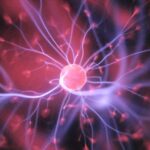
A Comprehensive Guide To Learn To Program
The Importance of Programming
Educational institutions are churning out geoscientists, equipped with knowledge about rocks, water, maps, and other relevant topics. However, there’s a skill that is often overlooked – programming. Envision a world where programming concepts are introduced right from childhood, where even a kindergartener can command a robot. This isn’t just a utopian idea but an achievable reality.
Programming is a powerful tool, providing you with the capability to control and direct the digital world instead of being dependent on it. Knowing how to make a computer execute tasks based on your instructions puts you at an advantage in our tech-dominant world. With programming, the limitations of your operating system, predecessors’ preferences, or budget don’t dictate the scope of analyses and visualizations you can perform on your data.
Skills and Essentials For Programming

To clarify, the aim isn’t to transform every researcher into a programmer. The idea is to provide individuals with a basic understanding of how computer programs function, why they operate in a certain way, and the ability to experiment and innovate.
Tinkering with codes can lead to the development of new models, prototypes, and even the breakdown of existing systems. This breakdown, in turn, results in learning, reconstructing, understanding, and crafting something new. Hence, the process of creating something by breaking down the old can be viewed as a form of creativity.
Embrace the Art of Programming
Programming is not just about giving commands to a computer. It’s a unique kind of problem-solving that encourages thoughtfulness and ingenuity, providing immediate, tangible results as rewards. It involves breaking down large problems into small, manageable parts that can be solved independently. As you delve deeper, you’ll start to appreciate the beauty of crafting codes, creating algorithms, and the sheer artistry involved in programming.
As you delve into the complexities of programming, understanding the nuances of concepts like the quality factor, or Q, in seismology, can offer a fascinating parallel to the layers of complexity and optimization found in coding practices.
Tools and Tips for Programming Beginners
Fortunately, the digital era has made it easier than ever to learn programming. A plethora of tools and platforms is available, aimed at beginners and kids, teaching the concept of algorithms and procedures. MIT’s Scratch project is a frontrunner in this, while other teaching tools include Lego MINDSTORMS robotics system and App Inventor for Android that help you build robust applications.
If you’re a Mac or a Linux user, you already have languages such as shell, AWK, Perl, and Python at your disposal. Online platforms like codepad.org provide multi-language interpreters.
Platforms to Learn Programming
For those venturing into the world of programming, here are some guiding principles to consider:
- Begin your programming journey by addressing a concrete, manageable problem that requires a computational solution;
- If you’re in need of inspiration, platforms like Project Euler offer a multitude of challenges to apply your problem-solving skills;
- Start with an accessible, high-level programming language such as Python, Perl, or Java to lay a solid foundation;
- Invest in a single comprehensive resource, such as a detailed O’Reilly publication, to guide your learning process;
- Engage in self-led experimentation before enrolling in formal courses, but don’t postpone structured learning for too long;
- Become adept at utilizing search engines like Google to quickly navigate through programming queries;
- Embrace the opportunity to revisit and strengthen your mathematical skills, particularly in areas like trigonometry and statistical analysis;
- Share your creations with the community; your projects can aid in the learning of others and contribute to a culture of open knowledge.
Strategies to Improve Programming Skills

When learning to program, start with specific and relatively easier problems. Websites like Project Euler provide hundreds of such problems to test your skills. Google is also a valuable tool for figuring out solutions to your programming questions. As you learn, you’ll also get an opportunity to brush up on your math skills, particularly trigonometry, time series analysis, and inverse theory.
Exploring The Boundaries of Programming
Getting comfortable with programming will allow you to break through the pre-established boundaries and explore your skills further. You can create new methods, try out different programming models, and even experiment with how you break down larger problems into manageable parts. The world of programming is one with endless possibilities if you’re willing to learn and explore.
Conclusion
Learning to program equips you with a valuable skill set that opens up a world of opportunities. It allows you to take charge, solve problems, and create solutions in your own unique way. Whether you’re a scientist or a student, understanding programming can significantly enhance your capability to function and excel in today’s digital world.

















